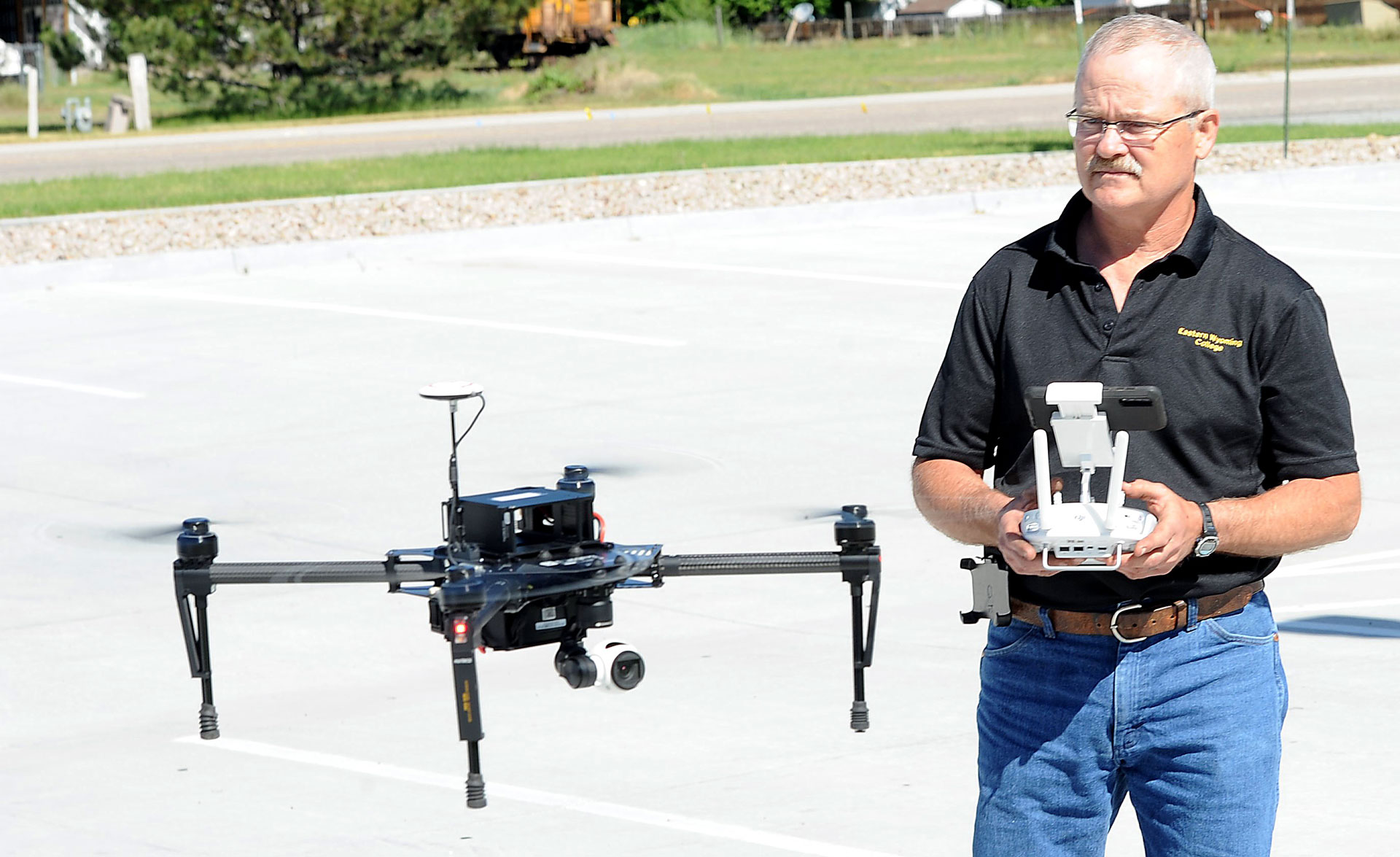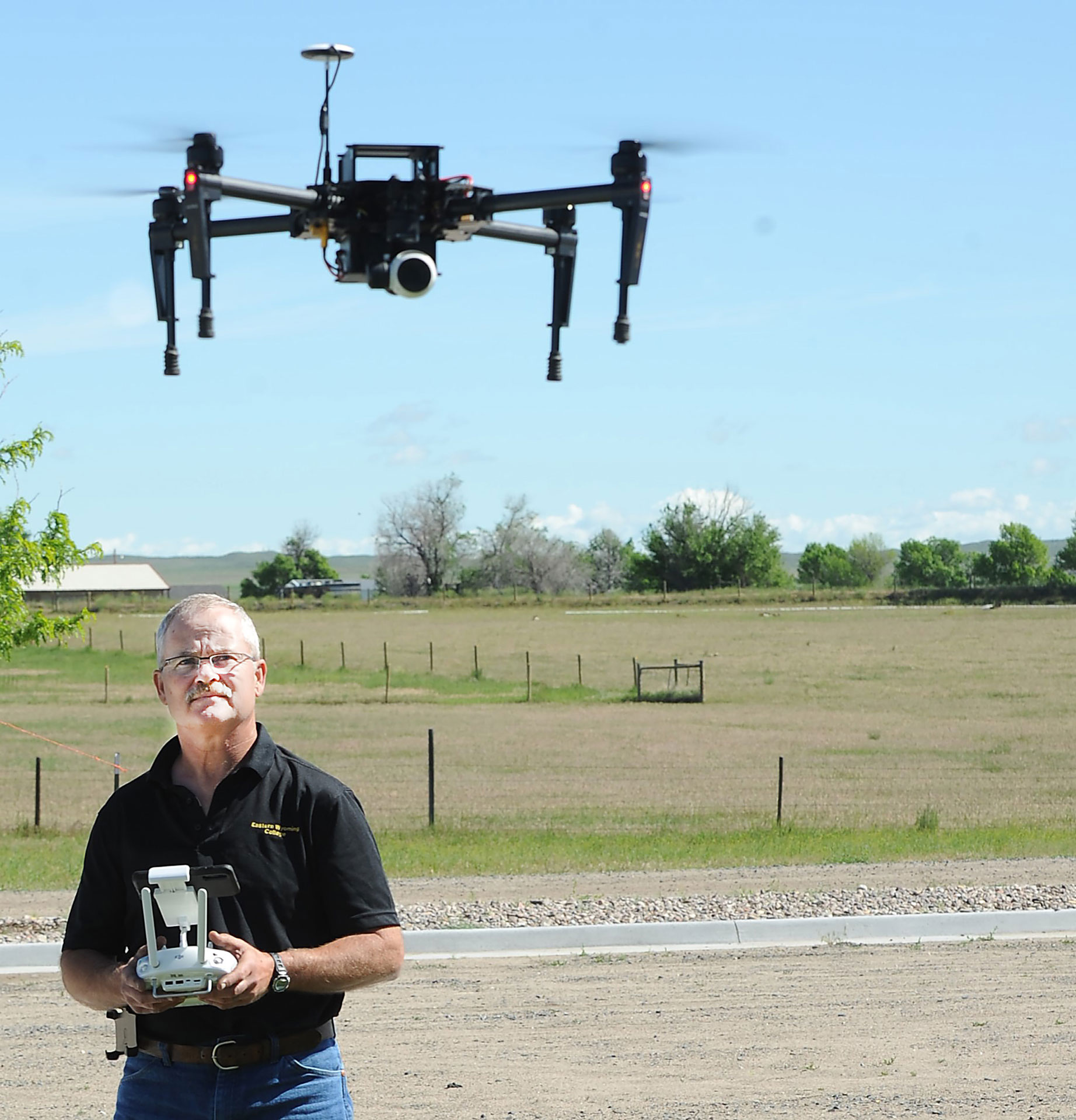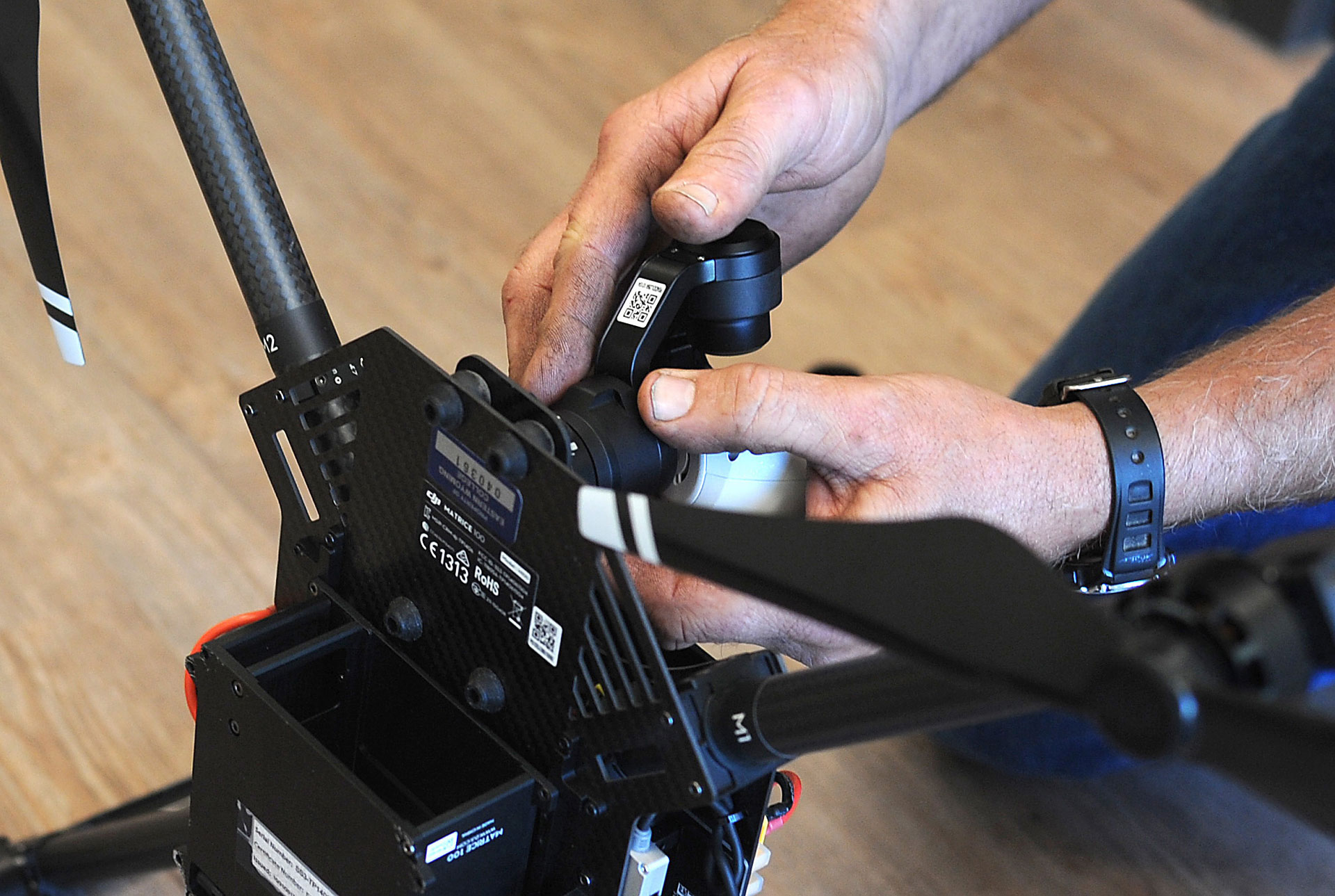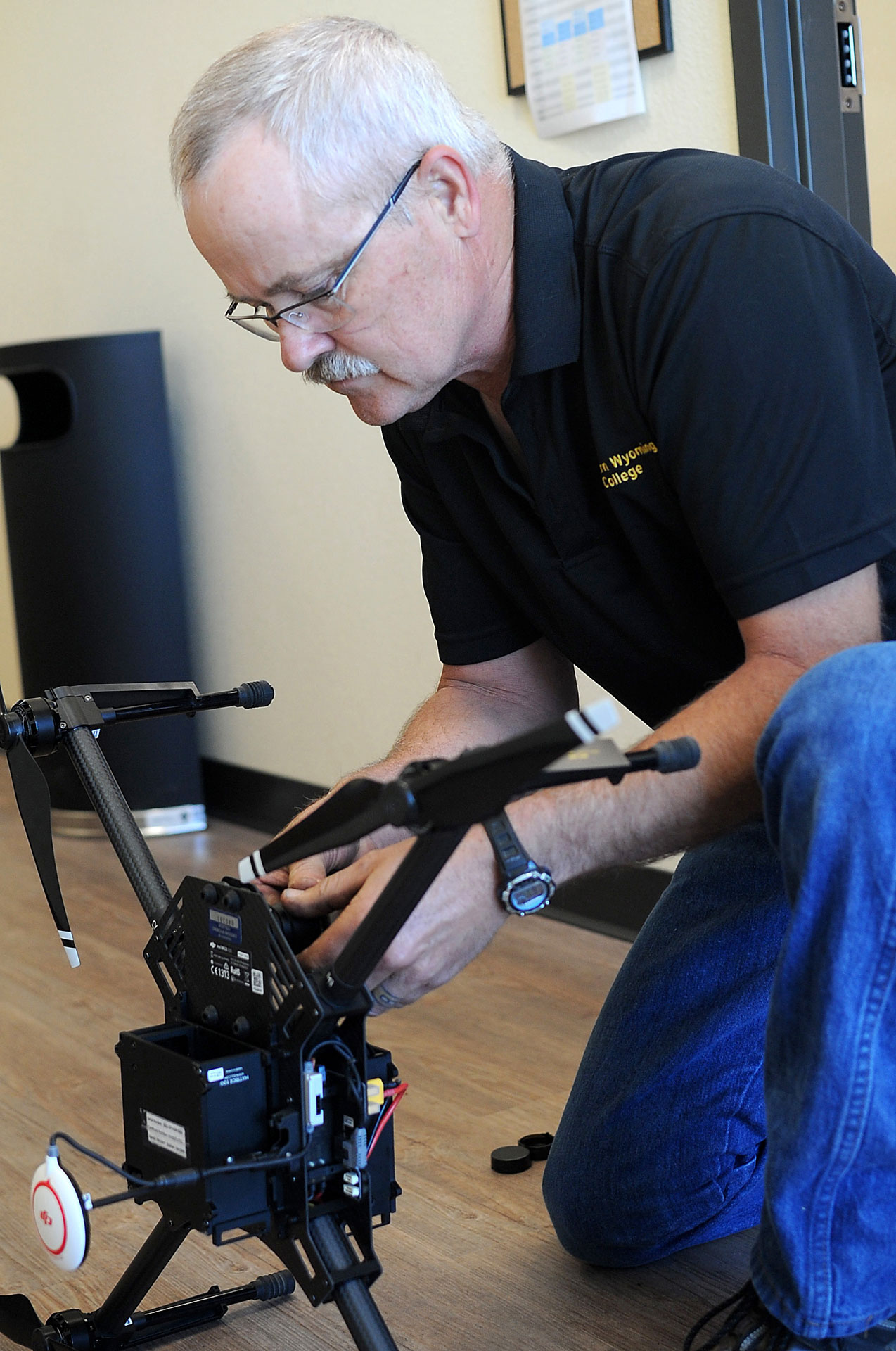Flying into Pinpoint Success – A look at the Precision Ag Program at EWC
 Raised on a farm north of Henry, Nebraska, agriculture has always played a major role in Matt Scott’s life.
Raised on a farm north of Henry, Nebraska, agriculture has always played a major role in Matt Scott’s life.
Today, he is an assistant professor of agriculture at Eastern Wyoming College, heading up the new precision agriculture program on the Torrington campus. He also teaches electrical and hydraulic classes, and a UAV license preparation class at EWC, but his main focus is precision agriculture.
 Precision agriculture is “more than just pretty straight rows,” Scott said. “It’s about saving money. Margins are so thin, if you can make an extra five dollars an acre you want it.”
Precision agriculture is “more than just pretty straight rows,” Scott said. “It’s about saving money. Margins are so thin, if you can make an extra five dollars an acre you want it.”
The savings and increase in profit can justify buying the expensive new equipment. It can be the difference between profit and loss. However, with any management tool, it must be used properly.
Precision agriculture is an approach to farm management using information technology to make sure crops and soil receive what they need for the best health and productivity. This includes using drones, GPS, yield maps, soil sampling, and more to create a management system of crops down to a square yard precision or even individual plants. Variable rate application technologies allow farmers to change the seed rate, depth, amount of fertilizer, and soil firming pressure during a single pass over a field.
 “You are looking at inputs and decision making for all your crops and your land to that (square yard) level,” Scott said. “Looking at one specific spot in a field you can tell how much it costs to grow the crop on that square yard.”
“You are looking at inputs and decision making for all your crops and your land to that (square yard) level,” Scott said. “Looking at one specific spot in a field you can tell how much it costs to grow the crop on that square yard.”
With that knowledge adjustments can be made to save money and improve profitability, he said.
“I am currently going after the precision ag certification and will be finishing it up in the upcoming fall semester,” EWC student Parker Yost, a student from Scottsbluff, Nebraska said. “I like the more technical side of agriculture like GPS that is used to run our tractors now and mapping out of our fields. And I think that the EWC precision ag program does a great job showing students how it all works together.”
Besides the classroom work, Yost said he liked getting out of the classroom and into local businesses, like Simplot. “They showed how they incorporate precision ag into their everyday business to help farmers grow a better crop with less inputs.”
The program at EWC is not just for farm kids, Scott said. It is for the gamers, the high tech students, and the students who enjoy computer programming.
“You don’t have to have an interest in ag to make a good living in ag,” he said.
Working farmers and ranchers can also benefit from the program, Scott added.
“New tractors (and other ag equipment) are designed for precision ag,” he said. “You need to understand all these systems to make everything work together.”
 Another aspect of precision ag is in animal science, Scott said. “It is not just for farmers, it’s also for ranchers.”
Another aspect of precision ag is in animal science, Scott said. “It is not just for farmers, it’s also for ranchers.”
Using GPS systems in a feedlot, the feed trucks will not put the wrong feed ration into the feed bunks. At the SAREC complex by Lingle, each cow that eats from the bunk has an ear tag which is sensed when it puts its head through to eat and it weights how much each animal eats to determine the feed efficiency of each individual as opposed to making an assessment based on the whole pen of animals.
Ranchers can use GPS collars on cattle to remotely control where each animal is allowed to graze, just like a dog collar can keep a dog in a yard. The collars can be used to herd the cattle.
“The bottom line is getting the best return on investment,” Scott added. “Using precision ag you can increase your rate of return. You can make more money with less inputs. It’s management.”
Students graduating with a precision agriculture degree can find good paying jobs with implement dealerships, machinery manufacturers, agronomy suppliers, seed companies, and extension, to name a few of the possibilities.
The precision agriculture program at EWC will enable students to develop the knowledge and skills needed to incorporate precision agriculture into a business operation. With the completion of the program students will be able to obtain a FAA 107 SUAV pilot’s license.
There is no other program similar to EWC’s precision agriculture program in the region, Scott said.
“I think precision ag is a very important part to agriculture because the world’s population grows each year and we keep losing farmland each year,” Yost said. “Precision ag comes into play when we have to make more food with less land and is very important to feeding the world.”
Students can earn an Associate of Applied Science in two years. They can stack the AAS onto a Precision agriculture one-year certificate.
“Precision agriculture is a rapidly growing and quickly changing area of agriculture with great job potential,” Scott said. “you can make $45,000 right out of school with a certificate and you can build up to over $100K.”
To charge into a career in precision agriculture students can register by calling Michelle at 307-532-8230. For more information on the program contact Matt Scott at mscott@ewc.wy.edu.
